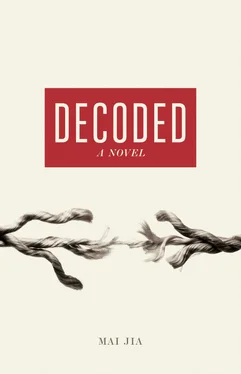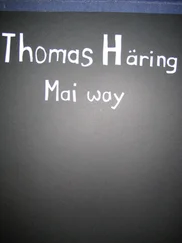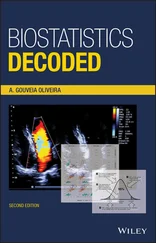Mai Jia - Decoded
Здесь есть возможность читать онлайн «Mai Jia - Decoded» весь текст электронной книги совершенно бесплатно (целиком полную версию без сокращений). В некоторых случаях можно слушать аудио, скачать через торрент в формате fb2 и присутствует краткое содержание. Год выпуска: 2014, Издательство: Allen Lane, Жанр: Современная проза, на английском языке. Описание произведения, (предисловие) а так же отзывы посетителей доступны на портале библиотеки ЛибКат.
- Название:Decoded
- Автор:
- Издательство:Allen Lane
- Жанр:
- Год:2014
- ISBN:нет данных
- Рейтинг книги:3 / 5. Голосов: 1
-
Избранное:Добавить в избранное
- Отзывы:
-
Ваша оценка:
- 60
- 1
- 2
- 3
- 4
- 5
Decoded: краткое содержание, описание и аннотация
Предлагаем к чтению аннотацию, описание, краткое содержание или предисловие (зависит от того, что написал сам автор книги «Decoded»). Если вы не нашли необходимую информацию о книге — напишите в комментариях, мы постараемся отыскать её.
Decoded — читать онлайн бесплатно полную книгу (весь текст) целиком
Ниже представлен текст книги, разбитый по страницам. Система сохранения места последней прочитанной страницы, позволяет с удобством читать онлайн бесплатно книгу «Decoded», без необходимости каждый раз заново искать на чём Вы остановились. Поставьте закладку, и сможете в любой момент перейти на страницу, на которой закончили чтение.
Интервал:
Закладка:
Zheng the Gimp took him through the main dining hall and into a separate room. The table there was already laid for breakfast. There was milk, eggs, stuffed buns, plain buns, and a number of little side dishes.
‘Sit down,’ said Zheng the Gimp.
Jinzhen sat down and started eating.
‘Look outside,’ said Zheng the Gimp. ‘They aren’t getting the kind of quality of food that you are eating; and they only have rice gruel to drink.’
Jinzhen raised his head and looked over. The people outside were all holding bowls, but he had been given a cup. There was milk in his cup.
‘Do you know why?’ asked Zheng the Gimp.
‘Is this some kind of special welcome?’
‘No. It is because your work is much more important than theirs.’ When he had finished breakfast, Rong Jinzhen began the work that he would devote the rest of his life to: cryptography. However, right up until that moment, he did not know that he was going to be assigned to this secret and heartbreaking profession. At the training centre, he had received unusual instruction — for example his teachers had required him to familiarize himself with the history, geography, foreign relations, holders of key government office, military might, military installations, defensive capabilities and so on of X country — he even had to read background material on a number of important government and military figures. This had made him very curious about what his future work was going to be. His first thought was that he was going to be researching some secret weapon that X country had developed for some special military objective. Later on he thought that maybe he would be joining some kind of PLA think-tank, say as a secretary to a senior military officer. After that, he thought that maybe he was supposed to become a military expert. After that, he thought of a number of other professions, all unpalatable in the extreme: a military instructor who would be sent overseas; a military attaché at an embassy; a spy, etc. He thought of all sorts of important and unusual professions that they could be intending for him, but he never even considered the possibility of becoming a cryptographer. That really isn’t a job, it is a conspiracy: a trap within a conspiracy.
5
To tell the truth, to begin with the people of Unit 701, then based in a mountain valley outside the suburbs of a certain city in China, did not realize quite what a great future Rong Jinzhen had ahead of him. Or at least you could say that they were not impressed by his work. He was engaged in lonely and difficult work — decrypting ciphers, for which in addition to training, experience and genius, you need a luck that comes from far beyond the stars. People in Unit 701 said it was perfectly possible to catch that luck that comes from far beyond the stars, but it requires that you raise your hands up high every morning and every evening at exactly the same time as black smoke comes curling out of your ancestors’ tombs.
When he first arrived, Rong Jinzhen did not understand this; or perhaps he simply did not care. But he spent the whole day reading a bunch of books that had nothing to do with anything — for example he would often have his nose in an English-language copy of the Complete Book of Mathematical Puzzles or a bunch of tatty old books stitched together with thread, their titles invisible. He seemed to fritter away each and every day in complete silence. He was obviously solitary (not snobbish or arrogant), but he did not say anything suggestive of particularly remarkable intelligence (in fact, he said very little to anyone), and he did not show signs of either great genius or great creative powers. People really did start to question his abilities and his luck. What was worse, no one was in any doubt as to his lack of interest in the work — as mentioned above, he was usually to be seen with his nose in a book totally unrelated to what he was supposed to be doing.
That was just the beginning. That was the first sign that he wasn’t working hard at his job, and the second was not far behind. One afternoon, Rong Jinzhen left the dining hall after lunch and, as was his wont, took a book and went for a walk in the woods. He didn’t have a siesta in the afternoons but he also didn’t do overtime — any spare time he had was usually spent reading in a quiet, out-of-the-way corner.
The north wing of the complex had been constructed on the mountain slopes. There were patches of natural woodland throughout the complex and he often went to one particular stretch of pine woods which was most conveniently located right by the main entrance to the caves where he worked. Apart from that, his other reason for selecting this particular woodland as his favourite walk was that he liked the particular piny smell of the trees, somewhat like medicated soap. Some people don’t like that resinous smell, but he enjoyed it. His love of this smell seemed closely related to his tobacco addiction, since after he took up walking regularly through the woods, he smoked a lot less.
That day, just as he walked into the wood, he heard the crunching sound of someone approaching. It was a man of about fifty. He seemed very modest and unassuming as he asked if he could play elephant chess, a sincere and ingratiating smile spreading across his face. Rong Jinzhen nodded his head and the other man happily whipped out a set and asked if he would like to play a game. Rong Jinzhen didn’t want to play — he wanted to read his book — but he felt bad saying so to the man’s face; it would have been rude to refuse, so he nodded again. Although it was now many years since he had last played, he had some experience of this game gained against Jan Liseiwicz — most people would not be able to beat him. This man wasn’t most people — the two men quickly realized that the other was a fine player in his own right and it would be very difficult for either of them to defeat the other. After that, the man often came to find him to play chess. He would come in the afternoon, he would come in the evening — sometimes he would even have the chess set waiting by the entrance to the cave or the door of the dining hall, to be sure of catching him when he went past. It was almost as if he was being stalked. This ensured that everyone knew he was playing chess with the lunatic.
Everyone in Unit 701 knew about the lunatic who liked to play chess. Before the Liberation, he had been an honours student at the mathematics department of Sun Yat-sen University, then after graduation he had been specially recruited by the KMT military and sent to Indo-China to work in their cryptography unit there. He had succeeded in cracking a high-level Japanese military cipher, making him famous in the world of cryptography. Later on, unhappy at Chiang Kai-shek’s decision to take the country into a second civil war, he managed to leave the military secretly and went to work as a foreman in a Shanghai electricity company under a different name. After the Liberation, Unit 701 went to a lot of trouble to find out what had happened to him; they invited him to come back. He had managed to crack a number of mid-level American ciphers, making him by far the most successful cryptographer they had. Two years ago, he had unfortunately developed schizophrenia — overnight he turned from a hero that everyone admired into a lunatic that they were all afraid of. If he saw someone he would curse at them, yelling and screaming; sometimes he would even hit people. Apparently this kind of acute schizophrenia, particularly when it is accompanied by a violent reaction on the part of the patient (what is commonly called paranoid schizophrenia), has a comparatively high rate of successful treatment. But because he knew too many important secrets, nobody dared to be the one that signed the order to send him to hospital. Instead, he was treated at the clinic attached to Unit 701. The doctors there were surgeons; they were quickly instructed in a handful of therapeutic methods by experts brought in from outside, and the whole thing did not go at all well. They managed to get him calmed down, but it all went far too far — other than his obsession with playing chess, he did not seem to think about anything else at all. In fact, he could not think about anything else. He had gone from being a paranoid schizophrenic to being a catatonic schizophrenic.
Читать дальшеИнтервал:
Закладка:
Похожие книги на «Decoded»
Представляем Вашему вниманию похожие книги на «Decoded» списком для выбора. Мы отобрали схожую по названию и смыслу литературу в надежде предоставить читателям больше вариантов отыскать новые, интересные, ещё непрочитанные произведения.
Обсуждение, отзывы о книге «Decoded» и просто собственные мнения читателей. Оставьте ваши комментарии, напишите, что Вы думаете о произведении, его смысле или главных героях. Укажите что конкретно понравилось, а что нет, и почему Вы так считаете.












